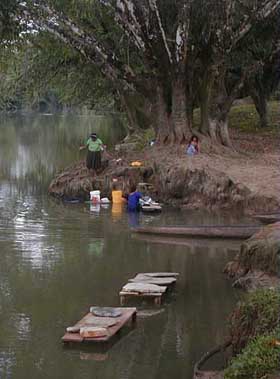 |
Gorda some seven miles or so along Belize’s famed Southern Highway before the old bluebird took a hard left from the paved tarmac and onto the dirt road. From there the bus twisted it’s way about three miles until we passed through the Maya village of San Felipe. Another four miles and I politely nodded with only my eyes to let the bus conductor know that I too wanted to get off with the rest of the crowd that were now standing in single file for offloading into the village of Santa Ana. As I had no real plan much less a prearranged tour of any sort, I stepped off the bus pressure free, affording me time to take in my surroundings. I noticed there were three pigs grazing on the path over to my left. To my right an old man was carrying off at least fifty pounds of what appeared to be fresh oranges, squeezed tightly into a Belize Mills Limited company burlap bag and strapped by a thin rope around his forehead. Off into the near distance was another man standing bare chested and alone in the doorway of a pulperia. Above his head was a Belikin beer sign posted over the door welcoming all as they entered. For a number of good reasons that need not be revisited at this juncture, the lone pulperia of course proved in the end to be the most sensible location to start my inquiries into how to find a canoe, a couple of paddles and an able minded captain for the required voyage to file my BelizeRivers.org report. And so after a handful of Belikins I now found myself with a one Armando Sam and together we walked back down that dusty trail where only moments before upon departing the Barranco bound twelve o’clock bus I noticed the pigs a’grazing . Mr. Sam, a Ketchi Maya indigenous to Santa Ana, was also a father of six healthy and happy children and the husband to his dear Maria. A Belizean Defence Force BDF soldier now retired, Armando now farmed his milpa fields in season and did what he could to get by the rest of the year, which this day he readily admitted amounted to guaranteeing me some local assistance in my guiding and expeditionary needs. |
|||
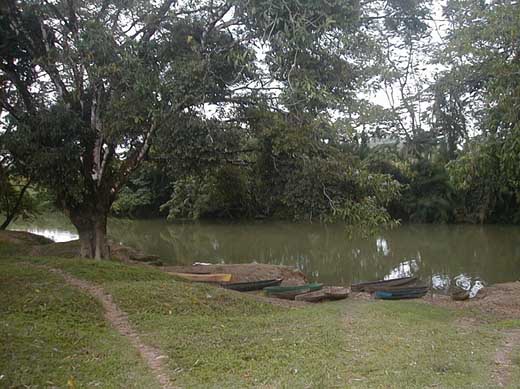 |
|||
I should note here upfront that Armando is not a registered guide. I will also be the first to agree that if there is to be regulation on the guiding industry nationally, it must be properly controlled. That said, although Armando holds a valid Belizean Social Security card and knows the area and river as well as the next guy, he can’t afford the guide school fee. He suggested that maybe there should be a down payment and pay after you guide program initiated nationwide. Because here I was looking for a knowledgeable local guide and I was standing in front of someone who was qualified to serve his nation, but not registered to guide tourist through his home village. With ethical guiding questions aside, my maps assured me that one could make it all the way by boat up the Moho River to the ancient and still remote Maya city of Pushila that straddles the Belize-Guatemala border. However, most of the locals as well as Armando all tried in vane to convince me that I would need to get off the river in Santa Theresa and on to the Jalacte bound bus to the trailhead for the push to Pushila. And so along with an unregistered and unnamed though amply qualified local guide of my choosing who presented a deal I could not refuse, I paddled my way up stream on the beautiful Moho River, truly a jewel in the untouched Belizean interior of the Toledo District. As my guide and I took in immediate vistas which unfolded around each river bend, it was close to impossible to miss the five foot long and longer Iguanas soaking in the morning rays riverside from the overhanging branches of the Emery and Rosewood trees. The lost in time reptiles (iguanas) seemed to have not a care in the world as they mixed it up, less of course they should be reminded as you and I of the lingering hunters lying in wait looking forward to the opportunity afforded by the iguanas momentary laps in judgement, a glance away at a fly or a passing parakeet or a splashing fish. Anyway you look at it, for the Iguana, it’s looking more and more like an end to their day in paradise. Indigenous iguanas are sold on the Belizean black market for about US$2.50 to US$10, depending upon just how big of an Iguana you would like to ‘illegally’ purchase. And although the iguanas supposedly afford very little meat, they are still cheaper than chicken or pork meat to the locals. But that day, Armando and I of course did not look to catch Iguanas, we quietly paddled by and enjoyed the scenery along the Moho River. |
|||
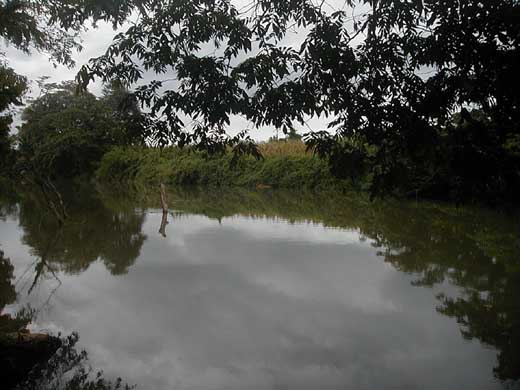 |
|||
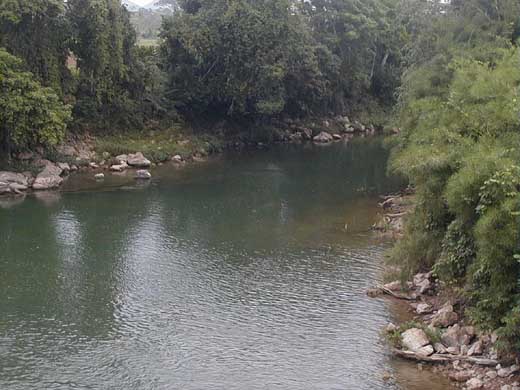 |
|||
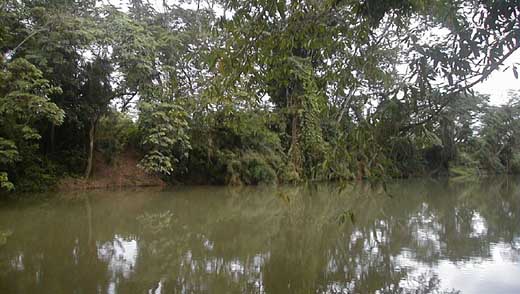 |
|||
Congratulations to BelizeRivers.org team members Eduardo Pop of Indian Creek, Toledo District, Belize, and Lisa Toth & Tim Truman of Indianapolis, Indiana, USA, who together in BelizeRivers.org first ever fielded team, placed 57th out of 88 finishing teams in the 2004 in the La Ruta Maya Belize River Challenge. |
|||
|
|||
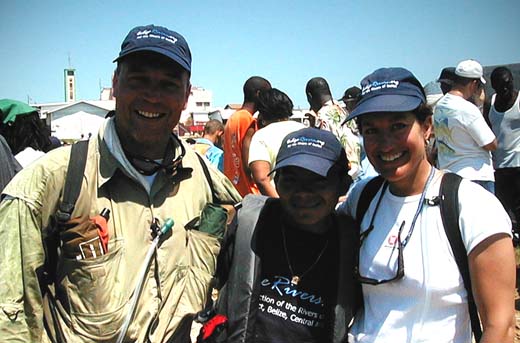 |
|||
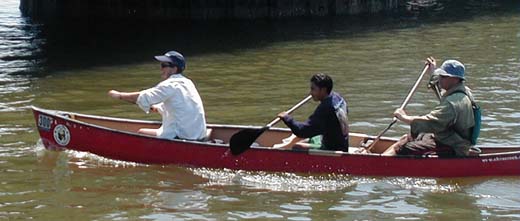 |


